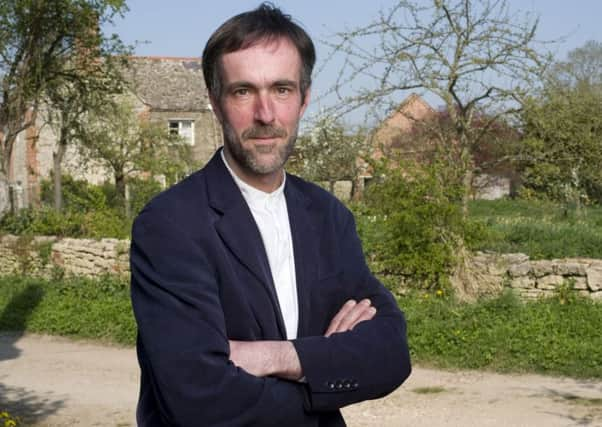Book review: The Debatable Land, by Graham Robb


This new book will fascinate everyone with a knowledge of the geography, history, mythology and character of the Anglo-Scottish borderlands. They will find much that is new to them as well as much that is familiar but presented in a new light or from a different angle, and some opinions or suggestions which they may dispute. Others ignorant of the region and its history will surely be stimulated to learn still more.
He says he had no intention of writing this book when he came with his wife (and their bicycles) to live in a fairly inaccessible house just above the Liddel Water which, at that point, marked the Border and had once been the Debatable Land’s southern boundary; but I guess it wasn’t long before the book was underway, and that everything about the place, both its past and its present, quickly proved irresistible.
Advertisement
Hide AdA word on the title is necessary. For years, I ignorantly and lazily supposed that the Debatable Land was disputed territory, now Scottish, now English, along the western Border, and I’ve heard others speak as if they thought so too. Not so: the name “was not a general term for the blackest parts of the Border; it referred to a precisely defined area in which no permanent building had been allowed. Animals could be pastured there, but only between sunrise and sunset,” and no cultivation was permitted. The Debatable Land was neither Scottish nor English; it had been “a world apart for several centuries, its uniqueness was a sign of its antiquity.” It had its own laws, and these were adhered to, remarkably for hundreds of years.
Robb has researched the Reiving years pretty thoroughly (though it’s a surprise not to find Alistair Moffat’s history of the Borders among “Works Cited”) and he shows how often there was co-operation, when it suited them, between the Scottish and English governments. “History,” he remarks, “especially Borders history – is not always written by the victors”, the ballad of the gallant and bold Johnnie Armstrong being a case in point. Actually, it’s remarkable how often the losers in a quarrel or war are tenderly remembered; the Jacobites have all the best songs and murderous Reivers are the heroes of the Ballads.
It’s not all history or speculation about history (and even dryly academic history is inevitably speculative). Robb, a Scot brought up in England, is just as interested in both sides of the invisible frontier, and their inhabitants of the present as well as the past.
There is so much coming and going. If you live in Canonbie, a village in what was the Debatable Land, you are more likely to shop or even work in Carlisle than in a more distant Scottish town. So it was no surprise that a majority in the Borders voted “No” in the independence referendum. “On the edge of town road signs announce Langholm as the birthplace of Hugh MacDiarmid ... but on 18 September travellers entering Langholm on the A7 were greeted by a gigantic municipal banner bearing the single word ‘No’.”
Two years later, however, the Border was really divided – in opinion and aspiration, if not in fact, for in the EU referendum: a majority of Scottish Borderers voted Remain, while in Cumbria 60 per cent voted Leave. Robb was on the point of completing this book “in which the cross-border community was said to have over-ridden national differences and administrative divisions... yet here was proof of the contrary. On a matter of historic importance, the two sides faced in opposite directions”. In voting Leave were the Cumbrians also turning their back on Scotland?
No short review can do justice to the intelligence, charm, variety and sheer interest of this book. Read it, and you will be richly entertained and enlightened.
The Debatable Land, by Graham Robb, Picador, 334pp, £20